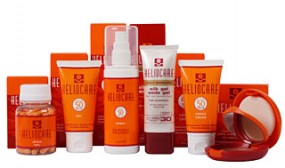- Fitness (19)
- News & Reviews (25)
- Nutrition (20)
- Science (10)
- Supplements (6)
- Technologies (8)
- The Arts (9)
Wintertime Vitamin D
October 11th, 2011
 By John Fauber of the Journal Sentinel: If the current strain of H1N1 swine flu is like flu strains of years past, it likely will mysteriously subside in the coming weeks.
By John Fauber of the Journal Sentinel: If the current strain of H1N1 swine flu is like flu strains of years past, it likely will mysteriously subside in the coming weeks.
For whatever reason, in temperate areas such as North America, flu largely is a fall and winter phenomenon. A couple of theories have tried to explain that seasonality, but in recent years an intriguing new idea has emerged:
Levels of flu-fighting vitamin D reach their lowest point in the winter when ultraviolet light disappears.
Vitamin D, which is made in large amounts in the skin when it is exposed to solar radiation, is a hormone that regulates hundreds of genes. Some of those involve the body’s innate immunity and its defenses against viruses, especially those affecting the respiratory system.
The idea is that if people increased their levels of vitamin D, it might help ward off outbreaks of flu.
For as far back as records exist, flu outbreaks have occurred around the planet when solar radiation was at its lowest. No one has been able to say why.
“It virtually disappears in the summer in temperate climates,” said William Schaffner, chairman of the department of preventive medicine at Vanderbilt University School of Medicine. “In the tropics it kind of smolders all year long. Its seasonality is not nearly as pronounced.”
Filed under Supplements | Comments Off on Wintertime Vitamin DThe Importance of Vitamin D
October 17th, 2010

By Cathie Dunal MD, MPH: The list of Vitamin D’s impact has expanded to both physical and psychological health:
- •. Lower rates of colon, lung, breast, and prostate cancer and melanoma
•. Less risk for stroke and heart attacks
•. Less risk for allergies and autoimmune disease
•. Prevents osteoporosis, through its role in assisting calcium absorption
•. Better immunity—fewer colds and flu
•. Lower risk of Alzheimer’s
•. Improved mood
•. Lower rates of multiple sclerosis. (However, this may be a false association because the lower rates are also associated with lower latitudes and more sun—it could be due to another component of sunshine.)
How much Vitamin D should you take?………. Continue reading »
Filed under News & Reviews | Comments Off on The Importance of Vitamin DHeliocare
August 21st, 2010
 Heliocare is a groundbreaking capsule for sun protection made from the fern Polypodium leucotomos. It offers a degree of additional whole body sun protection and prevents DNA damage. You still need your sunscreen! But it may be worthwhile if you have fair skin, sun damage, lots of sun exposure, or a personal or family history of skin cancers.
Heliocare is a groundbreaking capsule for sun protection made from the fern Polypodium leucotomos. It offers a degree of additional whole body sun protection and prevents DNA damage. You still need your sunscreen! But it may be worthwhile if you have fair skin, sun damage, lots of sun exposure, or a personal or family history of skin cancers.
Technically, Heliocare is dietary supplement with antioxidant properties which help maintain the skin’s ability to protect against sun-related effects and aging. It was discovered while scientists were looking for a treatment for vitiligo.
Fernblock™, the principal performance ingredient, works to protect skin structure, modulate immune response, and provide a daily defense against the UV photoaging process. Heliocare acts as a scavenger to mop up free radicals and reactive oxygen species (ROS), particularly superoxide anions. It helps to repair damaged DNA in the skin. (I’m taking it on a daily basis, year-round.)
You can find scientific info on Polypodium leucotomos at ncbi.nlm.nih.gov/pubmed/15583582 and webmd.com
We import Heliocare from New Zealand, and it’s available in our office.
Filed under Supplements | Comments Off on Heliocare



